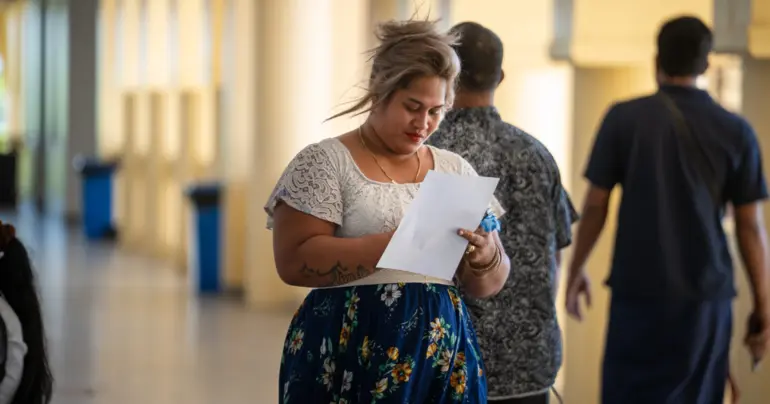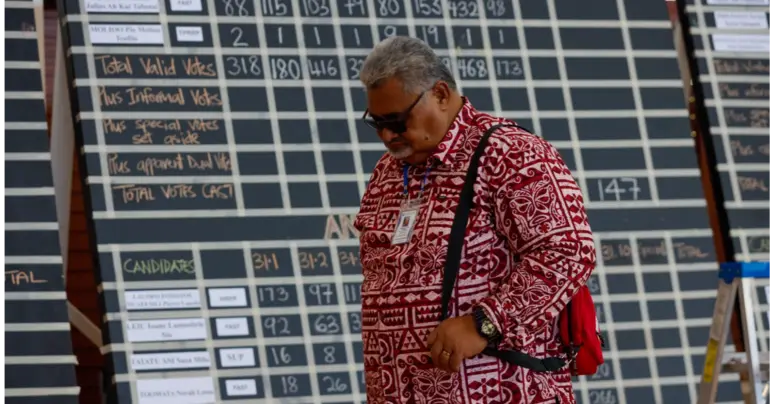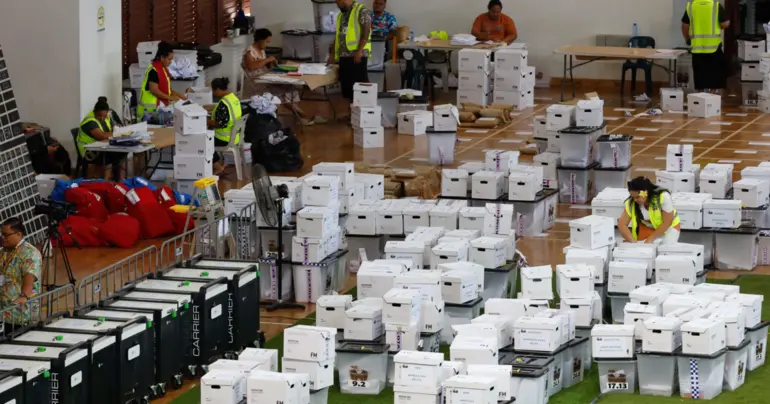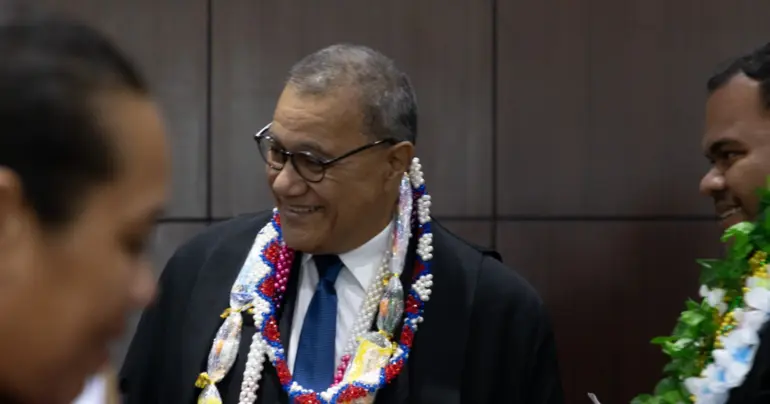Overseas banks cut off Samoan counterparts
 By Joyetter Feagaimaali'i
•
31 January 2021, 10:00AM
By Joyetter Feagaimaali'i
•
31 January 2021, 10:00AM
Samoa’s poor international financial reputation has caused two key overseas banks to cut ties with two of their Samoan counterparts but the Central Bank says it is confident it can absorb the impact.
The move to disconnect the Samoan banks is revealed in a report released this week by the International Monetary Fund (I.M.F.).
It is not known which local banks’ relationships have been terminated, nor by which institutions but the I.M.F. said two overseas entities would stop processing U.S. dollar transactions from Samoa by April.
The cut-off is a particularly significant blow because the banks served as so-called “correspondent banks” for the Samoan institutions.
Simply put, correspondent banks help others in Samoa send and receive money from around the world by facilitating transactions with their other banking partners and, to some degree, vouching for their legitimacy.
Samoa’s economy is hugely dependent on the inflow of money from overseas (also known as remittances), which accounts for about 20 per cent of the nation’s economy. Recently released data from the Ministry of Finance has shown they have become even more important to the economy, recording a quarterly increase of 14.4 per cent in the last quarter of the 2019-2020 Financial Year.
But the Central Bank of Samoa (C.B.S.) Governor, Maiava Atalina Ainuu-Enari, says she is confident the loss of relationships was a significant blow but could be addressed.
“This crucial banking service was for the effective settlement of foreign transactions abroad and the continuation of efforts to keep the costs to the clients of these two banks low,” she told the Samoa Observer.
“The C.B.S. is monitoring the affected banks in identifying alternatives as well as the impact on financial and remittance flows.”
But Maiava’s explanation suggested that concerns about money laundering or suspicious transactions were behind the overseas banks’ decisions to cut ties.
She said that the bank had engaged consultants to review whether Samoa had implemented the recommendations of a 2015 review undertaken by the Asia Pacific Group.
The group’s 2015 assessment of Samoa's anti-money laundering and counter-terrorist financing system found Samoa had some moderate to significant progress in some areas.
But more significantly Samoa was found to have only low levels of effectiveness in areas such as financial intelligence and investigating and prosecuting those involved in money laundering.
“To navigate through these challenging times, the Central Bank of Samoa is collaborating closely with these [affected] commercial banks on a bilateral basis,” Maiava said.
In its report on a recent mission to Samoa, the I.M.F. said that relationships with international financial institutions remain a concern for Samoa, and more measures to combat money laundering and terrorism financing were needed.
“Development of a national digital identification system should facilitate customer identification, especially for citizens receiving remittances,” the fund concluded.
“Ensuring that [service providers] are verifying the accuracy of beneficial ownership information [of financial assets] and that authorities are facilitating international exchange of such information will contribute to enhancing transparency of international business companies established in Samoa.”
Governor Maiava told the Samoa Observer in the short term, the C.B.S. will have to understand the impact of the termination of these relationships on the two local banks and their ability to settle foreign transactions.
“They will have to provide the necessary foreign currency (United States, Australian and New Zealand dollars) needs for each of the affected banks during the transition from the closure of their USD bank accounts,” she said.
Over the longer-term, she said the banks will have to seek similar relationships with second-tier American commercial banks or alternative commercial banks abroad that are willing to provide such a CBR service.
“And also they will aggressively pursue the Know Your Customer [regulation development project] funded by the Asian Development Bank, [for] which Samoa has been selected as [a] pilot,” she said.
Maiava said they will actively engage and promote the development of regulations led by Australian and New Zealand Reserve Banks in collaboration with the Pacific Central Banks.
They will also seek to establish better verification processes for financial institutions in Samoa and help them exchange information on financial information.
“[There is a] need to improve customer due diligence and suspicious transaction reporting obligations,” Maiava said.
 By Joyetter Feagaimaali'i
•
31 January 2021, 10:00AM
By Joyetter Feagaimaali'i
•
31 January 2021, 10:00AM











